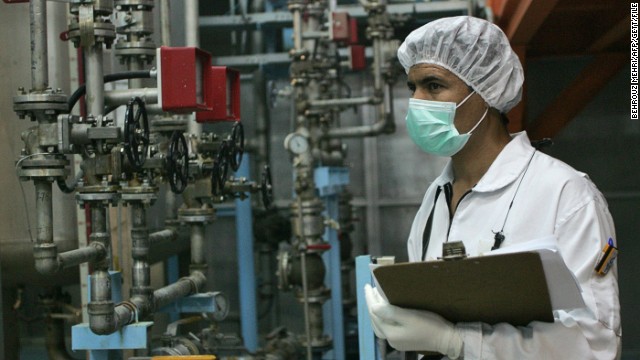[Original story published at 9:59 p.m. ET]
EU spokesman: Iran nuclear deal reached
A historic deal was struck early Sunday between Iran and six world powers over Tehran's nuclear program, a first step in ending a decades-long standoff over the country's nuclear intentions.
The agreement was expected to be signed within hours, capping days of marathon talks where diplomats worked to overcome issues surrounding the wording of an initial agreement that reportedly would temporarily freeze Iran's Iran's nuclear development program and lift some sanctions while a more formal deal is worked out.
"At three o'clock in the morning on the fifth day, white smoke in the negotiations!" Iran Deputy Foreign Minister Seyed Abbas Araghchi said in a post on Twitter.
on Twitter.
 on Twitter.
on Twitter.
The spokesman for the European Union, Michael Mann, also took to Twitter to tout the success: "We have reached agreement."
Details of agreement were expected to be released shortly by Catherine Ashton, the EU's foreign policy chief, in Geneva where the foreign ministers representing Iran, the United States, Britain, China, Russia, France and Germany were meeting.


For years, Iran and Western powers have left negotiating tables in disagreement, frustration and at times open animosity.
But the diplomatic tone changed with the transfer of power after Iran's election this year, which saw President Hassan Rouhani replace Mahmoud Ahmadinejad.
Caustic jabs at the United States and bellicose threats toward Israel were a hallmark of Ahmadinejad's foreign policy rhetoric.
He lambasted the West over the economic sanctions crippling Iran's economy and at the same time, pushed the advancement of nuclear technology in Iran.
Rouhani has struck up a more conciliatory tone and made the lifting sanctions against his country a priority.
Despite the sanctions, Iran today has 19,000 centrifuges and is building more advanced ones, according to Mark Hibbs, a nuclear policy expert at the Carnegie Endowment for International Peace.
Most world powers believe that Iran could not realistically build a usable bomb in less than a year, Hibbs said.
And Iran recently signed a deal with the International Atomic Energy Agency that agrees to give the U.N. nuclear watchdog agency access to long-unseen nuclear sites, including a heavy-water reactor in Arak.
Tehran is also a party to the Treaty on the Non-Proliferation of Nuclear Weapons, which requires it not to create nuclear weapons or enable other countries to obtain them.
Jim Sciutto is in Geneva, and Chelsea J. Carter reported and wrote from Atlanta. CNN's Ben Brumfield, Alexander Fenton and Shirley Henry contributed to this report.
Keine Kommentare:
Kommentar veröffentlichen